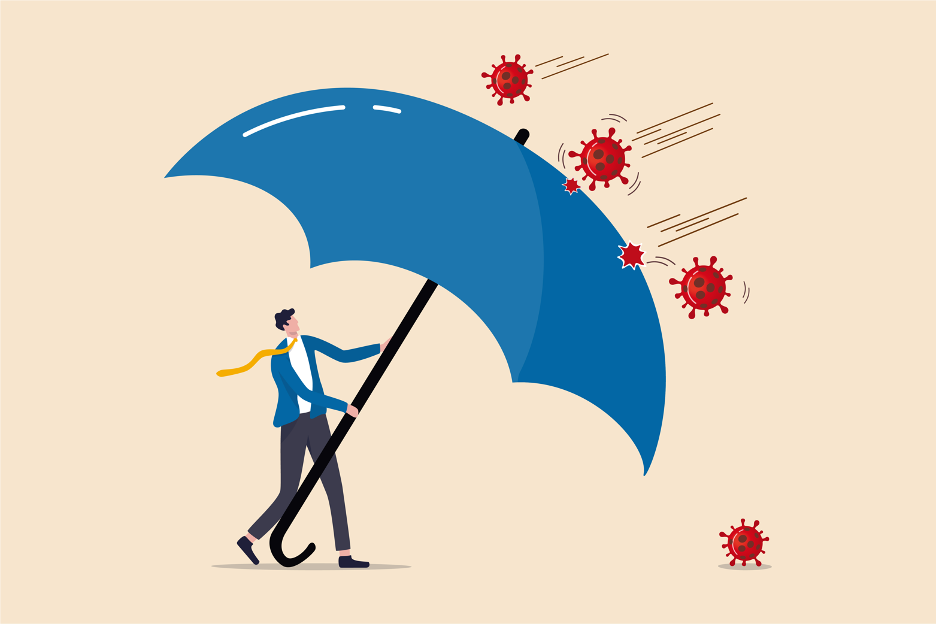COVID-19 can affect people in various ways. While anyone can contract the virus, certain people have a higher risk of developing severe symptoms or complications. It is crucial for them to be aware of the risks associated with the virus. By understanding the diseases and health conditions that increase the susceptibility to COVID-19, people can take precautions to keep themselves safe.
One of the first steps in identifying high-risk individuals is recognizing the underlying health conditions that make them more susceptible to COVID-19. Chronic diseases, such as heart disease, diabetes and lung disease, have been found to increase the risk of severe illness from the virus. These conditions weaken the immune system and make it harder for the body to fight infections. People with compromised immune systems, such as those undergoing chemotherapy or organ transplant recipients, are also at a higher risk.
Age also plays a significant role in determining vulnerability to COVID-19. Older adults, especially those older than 65, are more likely to develop severe symptoms or complications if infected. This is because the immune system weakens with age, making it harder for the body to mount an effective defense.
It is important for older adults to understand how the COVID-19 vaccine improves their ability to fight the virus if they contract it. Contact your local COVID vaccine clinic in Northwest Indiana to learn more.
Diseases that increase the susceptibility to COVID-19
Certain diseases have been identified as increasing the susceptibility to COVID-19. Understanding these diseases is crucial in identifying high-risk people and implementing appropriate measures to protect them. Respiratory conditions, such as chronic obstructive pulmonary disease (COPD), asthma and cystic fibrosis, can make it more difficult for people to breathe if they contract the virus. This can lead to severe respiratory distress and potentially life-threatening complications.
Cardiovascular diseases, such as heart disease and hypertension, also have been associated with an increased risk of severe illness from COVID-19. These conditions affect the heart and blood vessels, making it more difficult for the body to deliver oxygen and nutrients to vital organs. As a result, people with these conditions may be more susceptible to the respiratory and cardiovascular complications of the virus.
Other diseases that heighten the susceptibility to COVID-19 include diabetes, obesity and kidney disease. These conditions can compromise the immune system and make it more difficult for the body to fight infections. They also often come with other health complications that further increase the risk of severe illness.
Vaccine safety and efficacy
Vaccines have been one of the most effective tools in combating COVID-19. They not only protect individuals from severe illness, but they also contribute to achieving herd immunity, thereby reducing the overall transmission of the virus. It is essential to address any concerns or misconceptions regarding vaccine safety and efficacy, especially among high-risk people who can benefit the most from vaccination.
Extensive research and clinical trials have demonstrated the safety and efficacy of COVID-19 vaccines. The vaccines have undergone rigorous testing and have been approved by regulatory bodies such as the FDA. The vaccines have been shown to significantly reduce the risk of severe illness, hospitalization and death from COVID-19. Adverse reactions are rare and generally mild, such as soreness at the injection site or mild flu-like symptoms.
It is important to consult with your COVID vaccine clinic in Northwest Indiana if you have any concerns or questions regarding vaccine safety. They can provide accurate information and guide people in making informed decisions about vaccination.
Where to get the COVID-19 vaccine in Northwest Indiana?
Are you ready to protect yourself or other at-risk individuals against COVID-19 by getting vaccinated? If so, and if you’re looking for a top-rated COVID vaccine clinic in Northwest Indiana, look no further than 219 Health Network. Contact us today at 833-219-0001 to speak with a professional.


